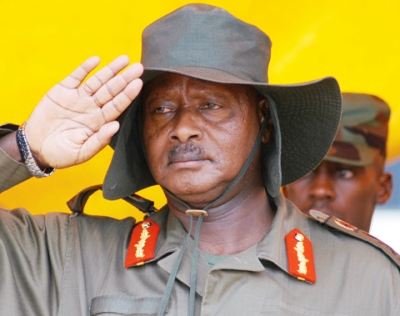Uganda’s Museveni appoints new head of S. Sudan operations
January 12, 2014 (KAMPALA/JUBA) – Uganda’s President Yoweri Museveni has reportedly appointed Col. Kayanja Muhanga as overall commander of its army (UPDF) operations in South Sudan.

The Ugandan army spokesperson, Lt. Col Paddy Ankunda confirmed the appointment in an interview with the Ugandan daily, describing the newly appointed officer as an “accomplished commander”.
He was, however, quoted saying Uganda was in the process of signing the Status of Force Agreement (SFA) with South Sudan government so as to officially define UPDF operations in the country.
“They [South Sudan] have written to us officially and SFA will be signed soon with the government of South Sudan and if the Window is open, we might be involved in peace enforcement,” further told Daily Monitor.
Officials from South Sudan army (SPLA) have remained tight-lipped on Uganda’s military involvement in the nearly one-month conflict.
In recent weeks, however, the involvement of the UPDF in the South Sudanese conflict has drawn mixed reactions, yet the army claims it only entered Juba to protect its citizens trapped in the violence.
But Museveni, a close ally of South Sudan President Salva Kiir, recently admitted that he sent his troops to “help restore hope” in South Sudan, confirming his military’s involvement in the conflict.
Rebels loyal to South Sudan former vice-president Riek Machar have demanded complete withdrawal of Ugandan forces from South Sudan, saying the latter was interfering into its internal affairs.
On Friday, members of the United Nations Security Council warned against external involvement in South Sudan’s conflict and expressed fears of possible escalation.
Dissident forces lost control of Bentiu, the Unity state capital on Friday after it was retaken by the South Sudanese army, forcing residents to flee in to neigbouring areas. The rebels also fled the area, which they controlled for about two weeks.
Intense fighting, which initially started in the capital, Juba spread to other parts of the country, killing more than 1,000 people and displacing over 200,000 in its worst ever post-session conflict.
(ST)
